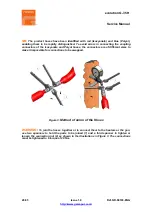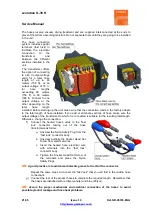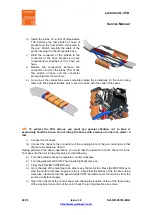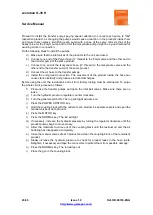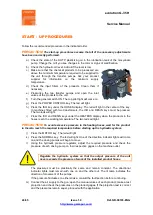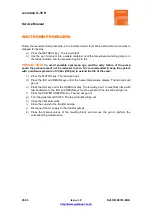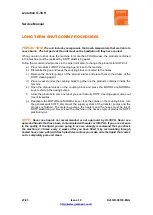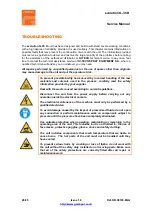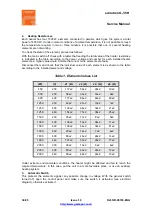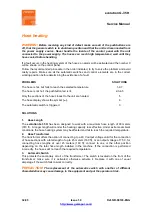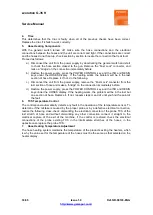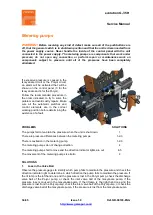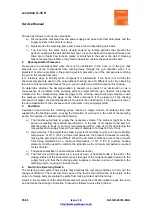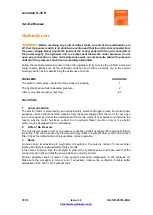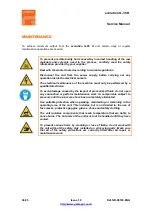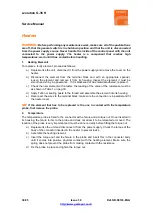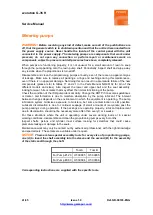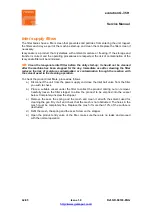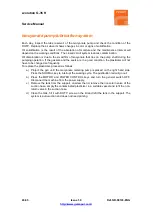
evolution G-35 H
Service Manual
34/45
Issue 1.9
Ref. NR-00103-ENG
http://www.gamapur.com/
Metering pumps
WARNING!
Before resolving any kind of defect, make sure all of the pushbuttons are
off, that the general switch is in shutdown position and that the unit is disconnected from
the power supply source. Never handle the inside of the control panel with the unit
connected to the power supply. The metering pumps are components that work under
pressure; do not open any connection or perform repair or maintenance work on
components subject to pressure until all of the pressures have been completely
eliminated.
If excessive pressure is caused in the
Isocyanate circuit or the Polyol circuit,
an alarm will be activated that will be
shown on the control panel (3 for the
Isocyanate and 4 for the Polyol).
Follow the recommended procedure in
the order indicated, to try to solve the
problem and avoid costly repairs. Make
sure all the automatic switches and
control elements are in the correct
working position before determining the
existence of a fault.
PROBLEMS
SOLUTIONS
The pumps fail to maintain the pressure when the unit is shut down.
1
There are pressure differences between the metering pumps.
1-2-3
There is cavitation in the metering pump.
1-2-3
The metering pumps do not change direction.
4
The metering pumps fail to move and the direction indicator lights are out.
4-5
The movement of the metering pumps is erratic.
4
SOLUTIONS
1.
Loss in the Valve Ball
Observe the pressure gages to identify which pump fails to maintain the pressure and check the
direction indicator light to determine in which direction the pump fails to maintain the pressure. If
the lit lamp is the left hand one and the pressure is lost in the Polyol pump, check the discharge
valve ball of the Polyol pump; or check the inlet valve ball of the Isocyanate pump, if the
pressure loss is caused in the Isocyanate pump. If the lit lamp is the right hand one and the
pressure is lost from the Polyol pump, check the inlet valve ball of the Polyol pump; or check the
discharge valve ball of the Isocyanate pump, if the pressure is lost from the Isocyanate pump.

